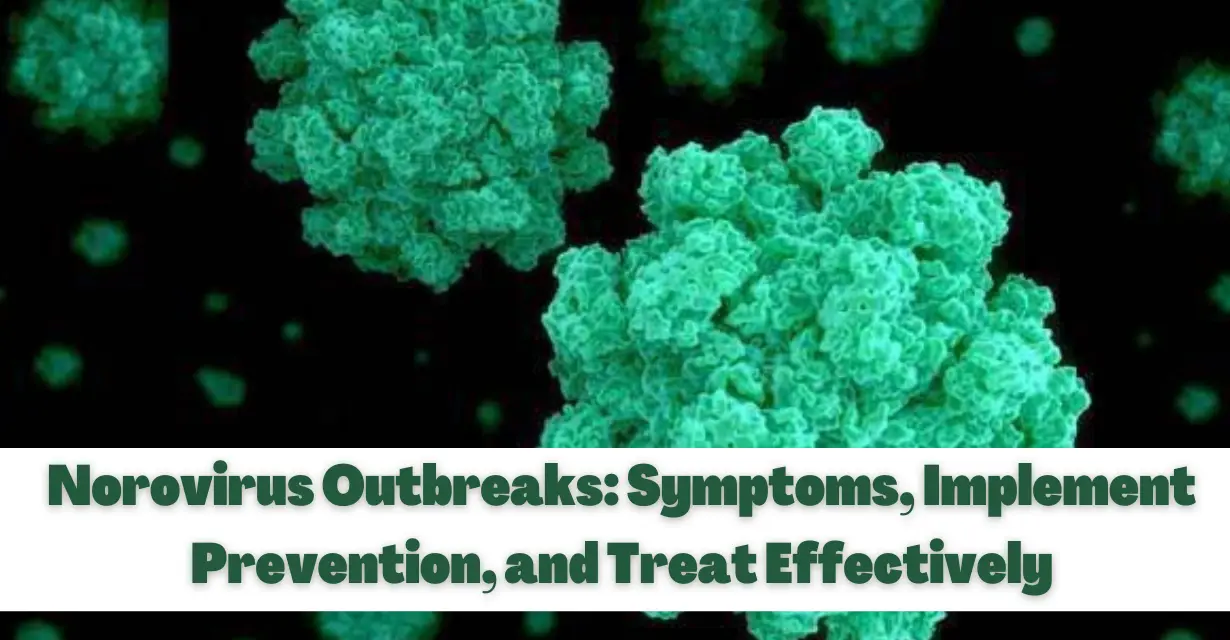Norovirus Outbreak [Norovirus Symptoms, Norovirus Prevention, Norovirus Treatment, How it Transmit, transmission, Norovirus Causes]
Norovirus, also known as the “stomach flu,” is a highly contagious virus that causes inflammation of the stomach and intestines, leading to symptoms such as nausea, vomiting, diarrhea, and stomach cramps. It is spread through contaminated food or water, close contact with an infected person, or by touching contaminated surfaces.
Outbreaks of norovirus are common in places such as schools, nursing homes, and cruise ships. It is important to practice good hygiene, such as washing your hands frequently and thoroughly, to prevent the spread of the virus.
What is Norovirus?
The highly contagious norovirus inflames the stomach and intestines, resulting in symptoms like nausea, vomiting, diarrhoea, and cramps. Despite having no connection to the influenza virus, it is frequently referred to as the “stomach flu.”
In the US, norovirus is the most common cause of acute gastroenteritis, an inflammation of the stomach and intestines. It causes 19–21 million infections, 56,000–71,000 hospitalisations, and 570–800 fatalities annually.
Symptoms of Norovirus
The symptoms of norovirus infection typically appear within 12-48 hours after exposure to the virus and can last for 1-3 days.
Common symptoms of Norovirus include:
- Nausea
- Vomiting
- Diarrhea
- Stomach cramps
- Fatigue
- Low-grade fever
- Headache
Transmission of Norovirus
Norovirus is highly contagious and can be easily spread through contact with an infected person, consuming contaminated food or water, or touching contaminated surfaces. The virus can also spread through the air when an infected person vomits, and it can survive on surfaces for several days.
Norovirus can be found in the stool or vomit of infected people and can be transmitted through:
- Direct person-to-person contact.
- Consuming food or water that has been contaminated with the virus.
- Touching surfaces or objects that have been contaminated with the virus and then touching your mouth.
- Having contact with an infected person’s stool or vomit.
Prevention
The best way to prevent norovirus infection is to practice good hand hygiene and to avoid consuming potentially contaminated food or water.
Some preventive measures include:
- Wash your hands thoroughly and frequently, especially after using the bathroom, changing diapers, and before preparing or eating food.
- Use soap and water, and scrub your hands for at least 20 seconds.
- Avoid consuming raw or undercooked shellfish, which can be contaminated with norovirus.
- Clean and disinfect frequently touched surfaces, such as doorknobs, light switches, and countertops, especially if someone in your household is infected.
- Stay away from people who are sick.
Treatment of Norovirus
Although there is no specific therapy for norovirus infection, staying hydrated is crucial. The majority of people get better from norovirus in a few days. It’s crucial to stay hydrated, especially if you’re experiencing diarrhoea or vomiting. Dehydration is more likely to occur in children, older persons, and those with compromised immune systems.
If a person is severely dehydrated, or if an older person or a person with a chronic illness is experiencing symptoms, it is important to seek medical attention as soon as possible.
It’s important to note that over-the-counter medications, such as loperamide (Imodium), can help reduce diarrhea, but they should be used only under the guidance of a healthcare provider, especially in children, pregnant women, and older adults.
Conclusion
In conclusion, Norovirus is a highly contagious virus that causes stomach and intestinal inflammation, leading to symptoms such as nausea, vomiting, diarrhea, and stomach cramps. It is the leading cause of acute gastroenteritis, an inflammation of the stomach and intestines, in the United States.
Transmission occurs through contact with an infected person, consuming contaminated food or water, or touching contaminated surfaces. The best way to prevent norovirus infection is to practice good hand hygiene and to avoid consuming potentially contaminated food or water.
There is no specific treatment for norovirus infection, but drinking fluids to prevent dehydration is important. Most people recover from norovirus within a few days but it is important to seek medical attention if someone is severely dehydrated or if an older person or a person with a chronic illness is experiencing symptoms.
Thank You!





